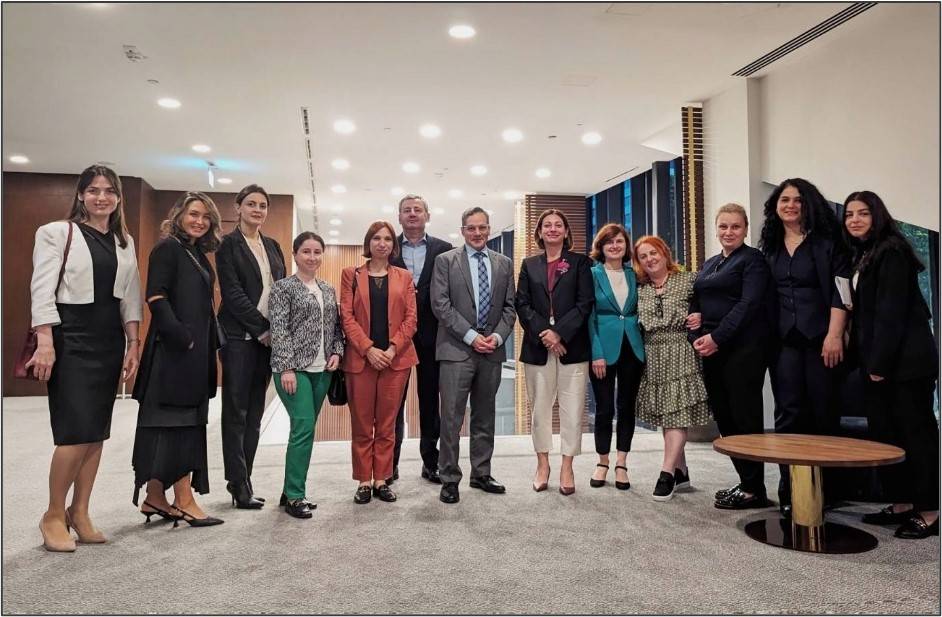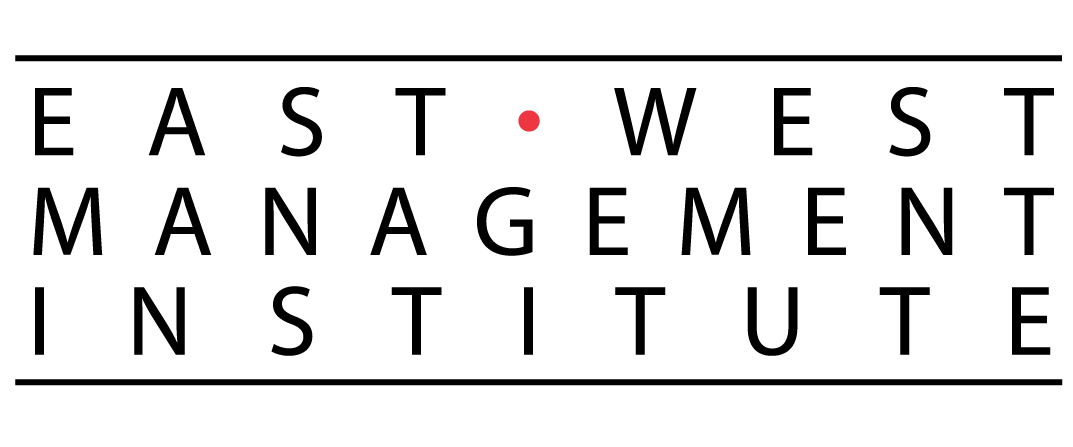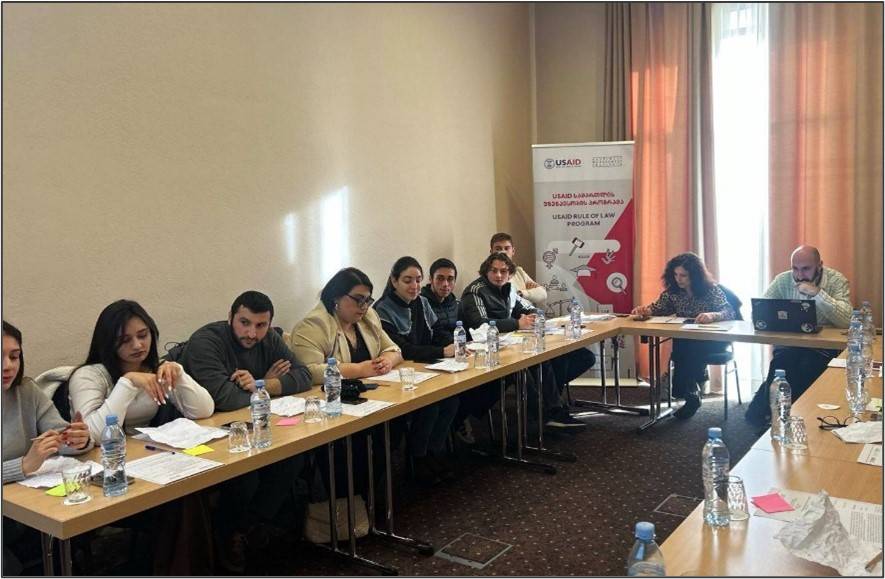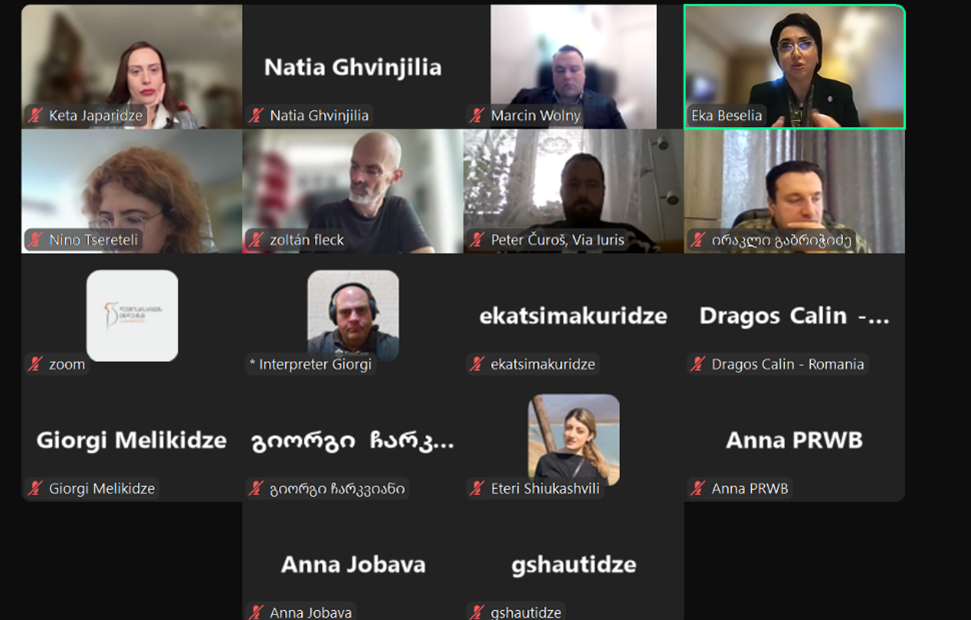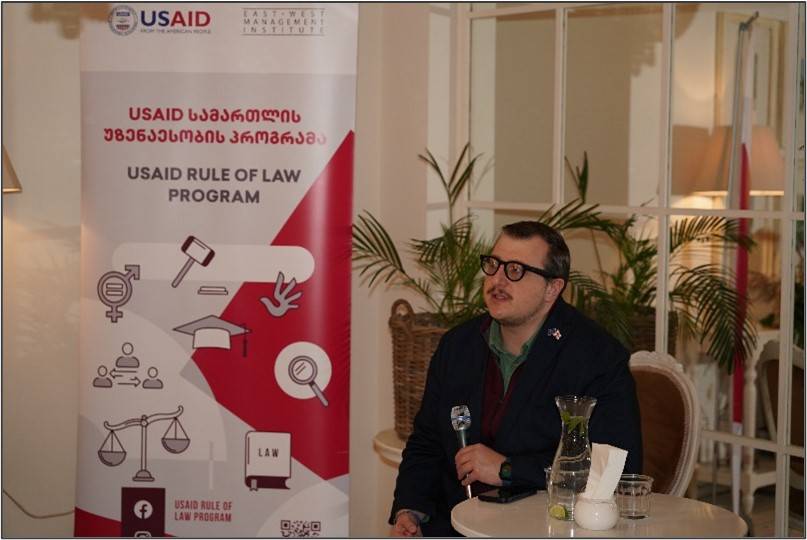Judicial Practice Group Considers Challenge of Discriminatory Speech and Offensive Statements in Social Media
On May 27, the Rule of Law Practice Group on Freedom of Expression met to discuss the problem of discriminatory speech and offensive statements in social media. Members of the Group, 11 judges and 5 judicial assistants, listened to Professor Jason DeSanto from Northwestern University (Illinois, US) explain aspects of U.S. First Amendment jurisprudence related to defamation, insults and threats spread online.
Professor DeSanto explained the underlying principles of the First Amendment’s free speech, principles rooted in the concept of the “marketplace of ideas” and believed necessary for a self-governing society.
Professor DeSanto explained that although this jurisprudence was developed by the U.S. Supreme Court at the beginning of the 20th century, it still guides the US courts in deciding issues related to dissemination of information through social media. Professor DeSanto explained some of the issues related to regulation of internet and types of content-based restrictions that could be imposed on internet platforms, as well as how they compare with more traditional channels of information dissemination, such as, print, broadcasting and telecommunications.
The question of whether internet platforms such as Twitter and Facebook can be considered public forums was of particular interest to Practice Group members and led to a discussion about standards and tests for determining what a public forum is, and whether personal accounts of public officials can be considered public forums in the light of the recent US Supreme Court case of Lindke v. Freed (no. 22-611).
The Practice Group judges provided an account of the case law of the Georgian courts on similar issues, demonstrating that the Georgian courts are also grappling with the new realities brought by the technological advances and the influence of social media upon everyday life.
